DRINKS
Ever Tasted Sweet Plum Juice? Here’s How To Brew One!
Published
2 months agoon
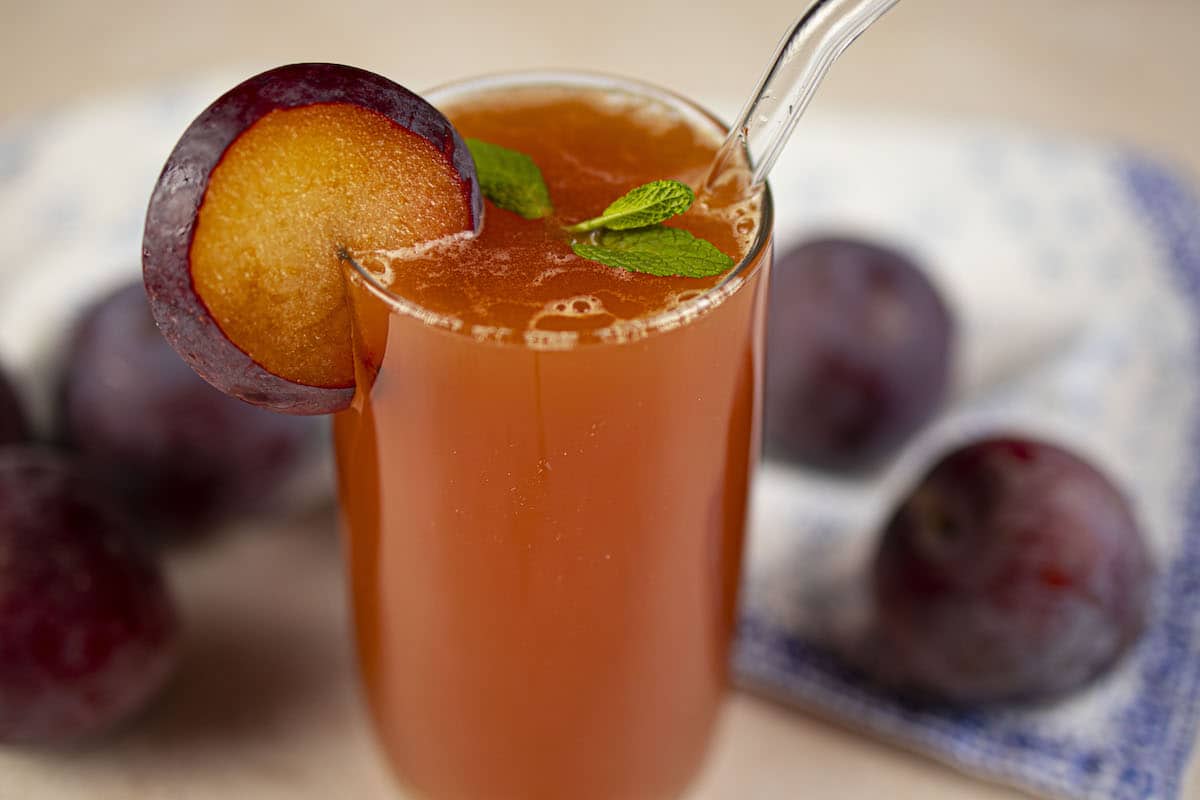
Plum juice is a delightful beverage packed with antioxidants and vitamins. The juice combines both a refreshing taste and exceptional nutritional benefits. It’s a perfect drink to quench your thirst, especially during hot summer days.
Here’s a simple guide on how to brew this refreshing drink.
Ingredients for Brewing Plum Juice
- Ripe plums
- Water
- Sugar (optional, for sweetness)
- Lemon juice (optional, for tanginess)
Equipment:
- Large pot
- Strainer
- Juicer (optional)
- Glass jars or bottles
Instructions:
1. Prepare the plums:
- Wash the plums thoroughly under running water to remove any dirt or debris.
- Cut the plums into halves and remove the pits.
2. Boil the plums:
- In a large pot, add the prepared plums and water.
- Bring the mixture to a boil over medium heat.
- Reduce heat and let the plums simmer for about 15-20 minutes, or until they become soft and the juice is released.
3. Strain the juice:
- Once the plums are soft, remove the pot from the heat and let it cool slightly.
- Strain the mixture through a fine-mesh strainer to remove the pulp and seeds.
4. Sweeten and flavour (optional):
- If you prefer a sweeter juice, add sugar to taste.
- For a tangy flavour, add a squeeze of lemon juice.
5. Bottle the juice:
- Pour the juice into clean, sterilized glass jars or bottles.
- Seal the containers tightly and store them in the refrigerator.
Tips for the Best Plum Juice
- Choose ripe plums: Ripe plums are sweeter and juicier, resulting in a more flavorful juice.
- Adjust sweetness and tartness: Taste the juice before bottling and adjust the sweetness and tartness to your preference.
- Store properly: Store the juice in the refrigerator to keep it fresh.
- Use a juicer: For a faster and more efficient process, use a juicer to extract the juice from the plums.
Can I freeze plum juice?
Yes, you can absolutely freeze plum juice to extend its shelf life and enjoy it long after the fresh fruit season has passed. Freezing plum juice is a practical and convenient way to savour its flavour year-round.
When freezing plum juice, be sure to use high-quality, freezer-safe containers to prevent leakage and freezer burn. Glass mason jars or BPA-free plastic containers work excellently for this purpose.
Remember to leave about 1 inch of headspace at the top of each container to allow for the natural expansion that occurs as the juice freezes. This extra space prevents the containers from cracking or bursting in the freezer.
For optimal quality and freshness, try to minimize the amount of air exposure in the containers before sealing them tightly. You can achieve this by using a ladle to carefully pour the juice, leaving as little headspace as possible.
Alternatively, you can use a funnel to fill the containers, further reducing air pockets.
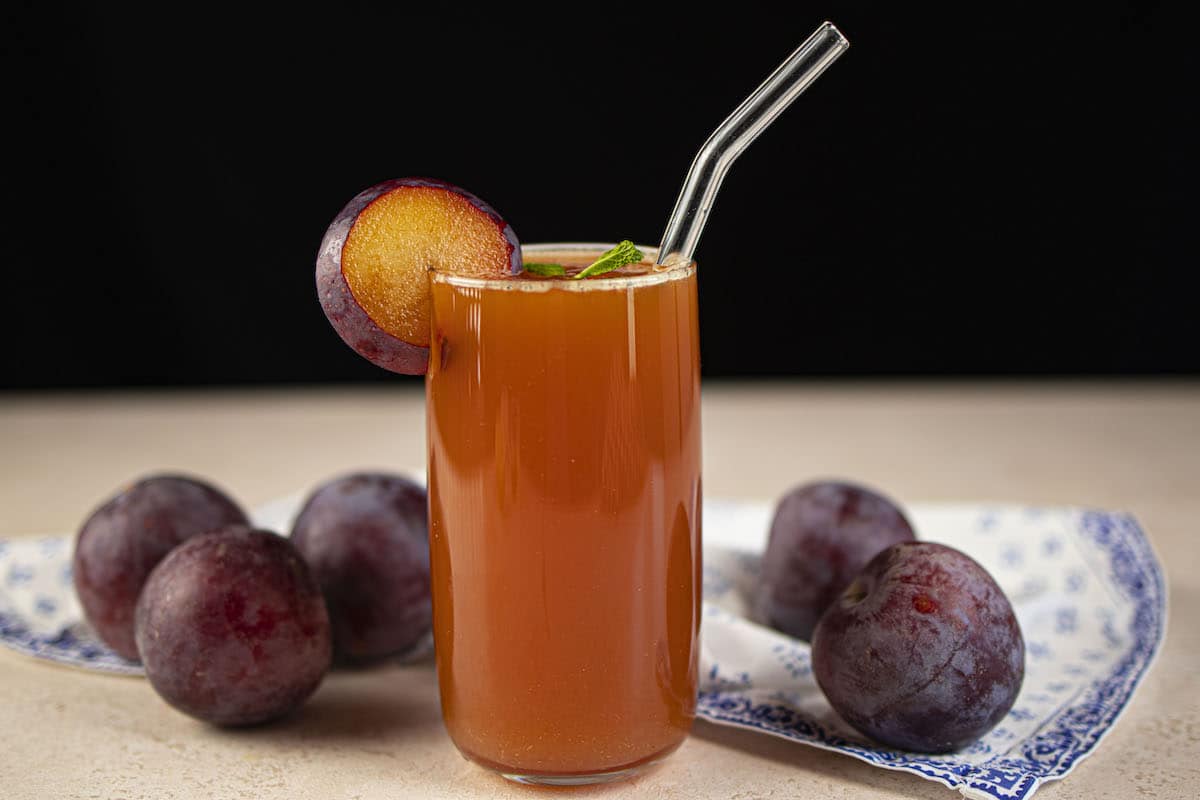
How long does homemade plum juice last in the refrigerator?
Homemade plum juice, when stored in airtight containers and refrigerated, can typically last for 3-4 days. However, the exact shelf life can vary depending on some factors.
These factors include the freshness of the plums, the cleanliness of the storage containers, and the temperature of the refrigerator. To maximize the shelf life of your homemade plum juice, it’s important to:
- Use fresh, ripe plums.
- Clean and sanitize the jars or bottles you’ll use to store the juice to prevent bacterial growth.
- Refrigerate promptly. Once the juice has cooled down, refrigerate it as soon as possible.
- Keep the refrigerator temperature consistent to maintain the quality of the juice.
By following these tips, you can enjoy your delicious homemade plum juice for a longer period.
Can I use dried plums to make juice?
Absolutely, dried plums, commonly known as prunes, can be repurposed to create a delightful and nutritious juice. While fresh plums are the ideal choice for juicing, using dried plums is a viable alternative, especially when the fresh fruit is out of season or unavailable.
However, there’s an important step to consider when using dried plums for juice – the rehydration process. Dried plums have a significantly lower moisture content compared to their fresh counterparts, so they require a bit of preparation before being juiced.
Begin by soaking the dried plums in water for at least 4-6 hours, or overnight, to allow them to regain their plumpness and soften.
This crucial step ensures the dried plums can be broken down effectively during the boiling process, extracting maximum flavour and nutrients into the resulting juice.
Once rehydrated, the dried plums can be treated the same as fresh plums in the juicing method, yielding a rich, concentrated elixir brimming with the sweet-tart taste of prunes.
With a bit of extra prep work, dried plums can be seamlessly incorporated into your homemade juice repertoire, providing a delicious and versatile option for year-round enjoyment.
What are the health benefits of plum juice?
Plum juice is a true elixir of health, packed with an impressive array of beneficial nutrients and compounds. At the heart of its wellness-boosting properties are the high levels of antioxidants.
This is particularly polyphenols, which help neutralize harmful free radicals and protect cells from oxidative stress.
Beyond the antioxidant powerhouse, plum juice is also a rich source of essential vitamins, including vitamins A, C, and K, which support immune function, skin health, and blood clotting, respectively.
Additionally, the juice contains minerals like potassium, phosphorus, and magnesium, all of which play crucial roles in maintaining cardiovascular health, regulating blood pressure, and facilitating proper digestion.
Regularly incorporating plum juice into your diet can yield tangible benefits for your overall well-being. The combination of antioxidants, vitamins, and minerals can help improve digestion.
This is done by promoting healthy gut function, boosting immunity to ward off common illnesses, and supporting cardiovascular health by lowering inflammation and cholesterol levels.
Truly, plum juice is a refreshing and restorative beverage that can be a valuable addition to any health-conscious lifestyle.
Can I use plum juice in cooking?
Yes, plum juice can be a versatile ingredient in your kitchen. Its unique sweet-tart flavour can elevate various dishes. You can use it to deglaze pans, create flavorful sauces for roasted meats, or add a fruity twist to marinades.
In baking, plum juice can be used to moisten cakes, add depth to frostings, or create unique glazes for pastries. Its natural sugars and acidity make it a great alternative to artificial flavourings and sweeteners.
You can enjoy the refreshing taste of homemade plum juice with those simple steps above. Experiment with different varieties of plums to discover your favourite flavour profile.
Did you learn the basic things you need to brew your homemade plum juice? Would you like to read more articles on drinks? Visit here.
You may like
-
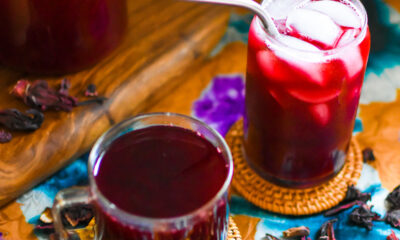

3 Best Nigerian Drink Recipes To Share Love This Season
-
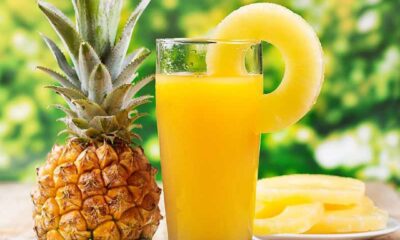

More Benefits To Pineapple Than You Think? Check These Out
-


Are Alcoholic Drinks Only Harmful? See Surprising Health Benefits
-
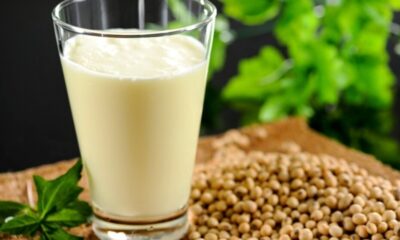

You Can Make Your Kunu Drink With This Simple Recipe
-


5 Health Benefits Of Drinking Warm Water Early In The Morning
-
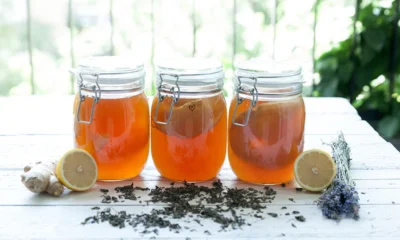

Here’s How You Can Brew Kombucha Tea In Nigeria
DRINKS
3 Best Nigerian Drink Recipes To Share Love This Season
Published
4 weeks agoon
December 22, 2024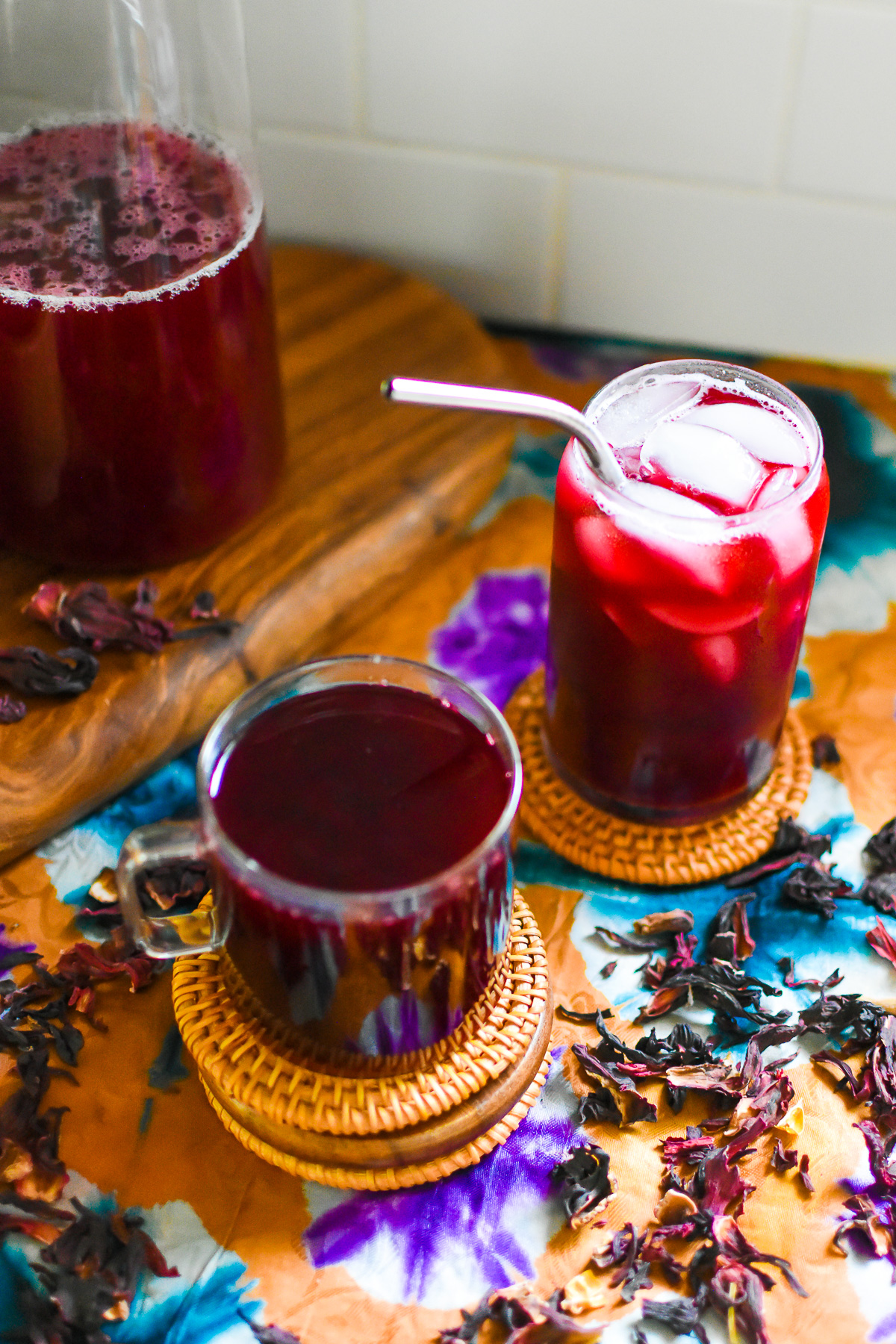
Are you planning to celebrate the holiday season by inviting loved ones to share delicious moments? You can delight them with Nigerian drink recipes for Christmas that inspire joy and connection.
Drinks play a central role in festive gatherings, making them the perfect way to create cherished memories. Here are three traditional and modern Nigerian drink recipes for Christmas that will elevate your festive experience.
1. Zobo (Hibiscus Tea)
Zobo is a refreshing and tangy drink made from dried hibiscus petals. This vibrant beverage is a favourite at Nigerian gatherings and a symbol of hospitality. It’s rich in flavour and easy to prepare.

Ingredients:
- Dried hibiscus petals (zobo leaves)
- Pineapple peels and ginger
- Cloves (optional)
- Sugar or honey
- Water
Preparation:
- Rinse the zobo leaves to remove impurities.
- Boil them with pineapple peels, ginger, and cloves for added flavour.
- Strain the liquid and sweeten it with sugar or honey.
- Serve chilled for a refreshing Christmas drink.
Zobo is versatile and can be infused with fruit juices for a personalised touch. It’s an iconic inclusion in Nigerian drink recipes for Christmas.
2. Nigerian Chapman
Chapman is often called “Nigeria’s cocktail.” This sparkling, fruity drink combines bold flavours and a touch of nostalgia. It’s a great non-alcoholic option to add sparkle to your celebrations.
Ingredients:
- Grenadine syrup
- Lemon-lime soda and bitter lemon
- Slices of orange, lemon, and cucumber
- Ice cubes
Preparation:
- In a glass, mix grenadine syrup with ice cubes.
- Add equal parts of lemon-lime soda and bitter lemon.
- Garnish with orange, lemon slices, and cucumber.
Chapman is perfect for sharing festive cheer with family and friends. Its sweet and tangy taste makes it a staple in Nigerian drink recipes for Christmas.
3. Tiger Nut Milk (Kunun Aya)
This creamy, nutritious drink is made from tiger nuts, a superfood cherished for its health benefits. Tiger nut milk is a wholesome way to toast to health and happiness this holiday season.
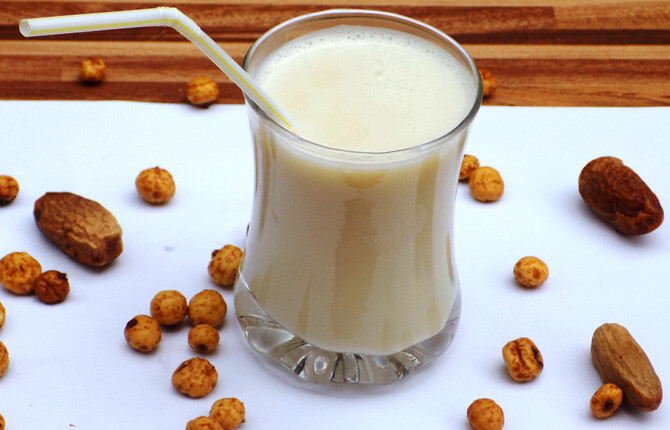
Ingredients:
- Tiger nuts (soaked overnight)
- Water
- Sweeteners like dates or honey
- Optional: vanilla or cinnamon for added flavour
Preparation:
- Blend the soaked tiger nuts with water until smooth.
- Strain the mixture using a muslin cloth or fine sieve.
- Sweeten with dates or honey and flavour with vanilla or cinnamon.
Tiger nut milk is dairy-free and loaded with nutrients, making it a unique addition to Nigerian Christmas drink recipes.
Tips for Serving Nigerian Christmas Drinks
- Elevate Presentation: Use decorative glasses or jars and garnish with fresh fruits or herbs.
- Chill Well: Serve your drinks cold to enhance their refreshing qualities.
- Customise Flavours: Add seasonal spices like cinnamon or nutmeg to give traditional recipes a holiday twist.
These Nigerian drink recipes for Christmas embody the essence of love, warmth, and togetherness. With each sip, you’ll be creating memories that linger long after the celebrations are over. Cheers to a flavourful and joyous holiday season!
For more detailed recipes, check here.
DRINKS
More Benefits To Pineapple Than You Think? Check These Out
Published
1 month agoon
December 8, 2024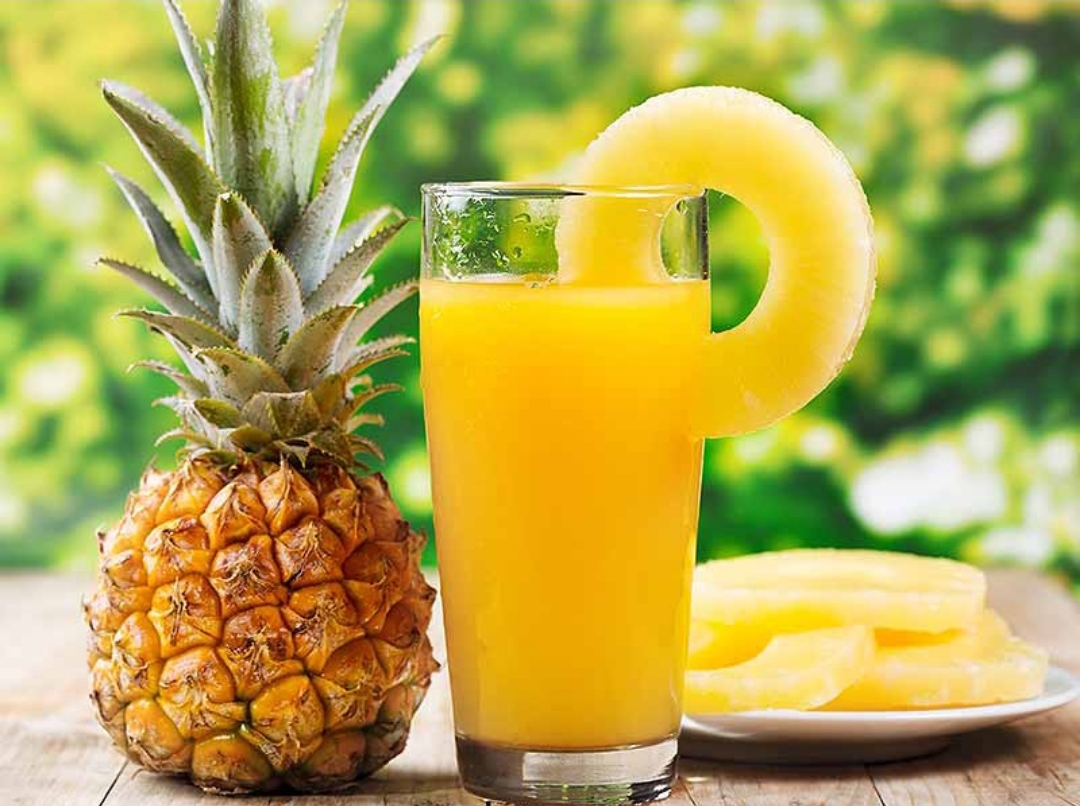
Pineapple drink isn’t just a tropical delight – it’s a powerhouse of health benefits. From boosting immunity to enhancing skin health, this vibrant fruit packs a punch.
Let’s explore the surprising benefits of pineapple drink, why you should incorporate it into your diet, and how it impacts overall health.
1. Rich Source of Nutrients
Pineapple is loaded with vitamins, especially vitamin C, and minerals like manganese and potassium. These nutrients support essential bodily functions, from boosting energy to strengthening bones.
Key Benefits:
- Vitamin C enhances immunity and skin health.
- Manganese supports bone density and metabolism.
- Bromelain, a unique enzyme, aids digestion and reduces inflammation.
2. Boosts Immunity
One major benefit of pineapple drink is its ability to fortify the immune system. Thanks to its high vitamin C content, it helps fight off infections and supports wound healing. Regular consumption keeps common colds at bay and enhances the body’s defence mechanism.
3. Promotes Digestive Health
Bromelain, found only in pineapples, plays a vital role in digestion. This enzyme breaks down proteins, making them easier to absorb.
It reduces bloating and aids in relieving constipation. Including pineapple drink in your diet ensures smoother digestion and gut health.
4. Fights Inflammation
The anti-inflammatory properties of pineapple, particularly due to bromelain, help combat chronic conditions like arthritis and sinusitis.
It reduces swelling and relieves pain, especially after surgery or intense exercise. Studies suggest bromelain may even complement antibiotic treatments, improving their effectiveness.
5. Supports Healthy Skin
Pineapple drink benefits your skin in multiple ways. Rich in antioxidants and vitamin C, it fights free radicals that cause ageing.
It promotes collagen production, keeping skin firm and radiant. Drinking pineapple juice can also help reduce acne and lighten blemishes.
6. Improves Heart Health
Drinking pineapple regularly supports cardiovascular health. Its high potassium content helps regulate blood pressure by counteracting sodium’s effects.
Antioxidants in pineapple reduce oxidative stress, lowering the risk of heart disease. Fibre from fresh pineapple drinks lowers cholesterol levels, enhancing heart function.
7. Enhances Eye Health
Pineapple drink contains beta-carotene and vitamin A, crucial for eye health. These nutrients protect against age-related macular degeneration and cataracts.
Regular consumption can help maintain clear vision and prevent eye-related disorders as you age.
8. Supports Bone Strength
Manganese in pineapple is essential for maintaining strong bones. This mineral, combined with calcium and copper, helps prevent osteoporosis and improves bone density.
Regular intake is particularly beneficial for postmenopausal women, reducing the risk of fractures.
9. Helps Weight Management
Pineapple is low in calories but rich in fibre, making it an ideal snack for weight management. It keeps you full for longer and prevents unnecessary cravings.
However, pineapple drinks should be consumed in moderation due to their natural sugar content.
10. Aids in Respiratory Health
For those with asthma or bronchial issues, pineapple drink offers significant relief. Bromelain reduces airway inflammation and improves breathing. Vitamin C further helps reduce symptoms related to allergic asthma.
11. Potential Cancer-Fighting Properties
Research suggests that pineapple may help combat cancer cells. Bromelain’s anti-inflammatory and antioxidant effects inhibit tumour growth and enhance the body’s immune response.
Regular consumption of pineapple drinks could be a preventive measure against certain cancers.
12. Protects Against Infections
Bromelain’s antibacterial properties help protect against harmful bacteria like E. coli. Some studies indicate that combining pineapple with antibiotics enhances their effectiveness.
Including pineapple in your diet strengthens your overall defence against infections.
How to Maximise the Benefits
For optimal results, choose fresh or cold-pressed pineapple juice. Avoid processed versions with added sugars. Drinking 8 ounces of pure pineapple juice daily provides ample nutrients without excessive sugar intake.
The benefits of pineapple drink extend beyond its tropical taste. From boosting immunity to supporting bone health and fighting inflammation, this fruit offers impressive advantages.
Make pineapple a regular part of your diet and enjoy its myriad health benefits.
Incorporating pineapple into your daily routine provides more than just flavour—it’s a step towards better health. Embrace this superfruit and experience its remarkable benefits.
For more articles on drinks, check here.
DRINKS
Are Alcoholic Drinks Only Harmful? See Surprising Health Benefits
Published
2 months agoon
November 30, 2024
Research indicates that moderate alcohol consumption may offer subtle health benefits. Specific drinks contain compounds that can potentially provide modest wellness advantages when consumed judiciously.
However, experts emphasize that these benefits are minimal and do not outweigh the risks of alcohol consumption. Individuals should consult healthcare professionals before considering alcohol as part of their health strategy.
Reduced Risk of Heart Disease
One of the most well-known health benefits of alcoholic drinks is their potential to reduce the risk of heart disease.
Studies have shown that moderate alcohol consumption can increase levels of “good” cholesterol (HDL) and decrease levels of “bad” cholesterol (LDL).
Additionally, alcohol can help prevent blood clots, which can lead to heart attacks and strokes.
Lower Risk of Type 2 Diabetes
Research suggests that moderate alcohol consumption may lower the risk of developing type 2 diabetes. Alcohol can increase insulin sensitivity, helping the body use insulin more effectively.
However, it’s crucial to remember that excessive alcohol intake can lead to insulin resistance, which can increase the risk of diabetes.
Potential Cognitive Benefits
Some studies have indicated that moderate alcohol consumption may help protect against cognitive decline and reduce the risk of dementia, including Alzheimer’s disease.
The antioxidants and other compounds found in certain alcoholic beverages, such as red wine, may play a role in these protective effects.
Stress Relief and Improved Mood
Alcohol is often used socially to relax and unwind. It can help reduce stress and anxiety, and it may even improve mood in small doses.
However, it’s important to be aware that excessive alcohol consumption can lead to negative mood changes and worsen mental health conditions.
Potential Anti-Inflammatory Effects
Certain compounds found in alcoholic beverages, such as polyphenols, have anti-inflammatory properties. These compounds may help reduce inflammation throughout the body, which can contribute to various health conditions.
Reduced Risk of Gallstones
Moderate alcohol consumption has been linked to a reduced risk of gallstones, which are small, hard substances that form in the gallbladder. Alcohol can help regulate bile flow, which may help prevent gallstone formation.
Social Benefits
Alcohol has been a part of social gatherings and celebrations for centuries. Moderate alcohol consumption can facilitate social interaction and bonding, which can have positive effects on mental health.
Consuming alcoholic drinks in moderation is essential to gain their health benefits. Excessive alcohol consumption can lead to a wide range of health problems. This includes liver damage, addiction, and increased risk of various cancers.
If you choose to drink alcohol, it’s crucial to do so responsibly and in moderation. Consult with a healthcare professional to determine what is considered moderate drinking for you.
Remember, the key to reaping the potential health benefits of alcoholic drinks is to drink responsibly and in moderation.
For more reads on drinks, click here.
Latest


5 Things To Expect In Afrobeats In 2025
Afrobeats is poised to reach unprecedented heights in 2025 as Nigerian music continues its remarkable global ascent. The genre’s explosive...


Here Are The 7 Most Ancient Countries On Earth
The oldest countries in the world stand as remarkable testaments to human civilisation, each containing landscapes and monuments that narrate...


Why Self-Reflection Is More Important Than Resolutions
Millions of people embark on a yearly ritual: they sit down with a notebook and pen, eager to craft a...


Nollywood Director, Kemi Adetiba Teases King Of Boys 3
Nollywood director Kemi Adetiba has revealed that another instalment of King of Boys will be released on December 25, 2025....


John McEnroe Says He Can Be The Commissioner Tennis Needs Amid Doping Crisis
Recent doping controversies involving top players have not damaged tennis’s reputation, but John McEnroe believes that appointing a single commissioner...


“Everybody Loves Jenifa” Becomes Nollywood’s Highest-Grossing Film Of All Time
Nollywood filmmaker Funke Akindele has achieved a historic milestone with her latest film, “Everybody Loves Jenifa.” The film has officially...


FG To Premiere TV Series, “Hidden Riches” On Mining Sector On January 25
Nigeria’s Federal Government will launch an ambitious television drama series focused on the nation’s mining sector, premiering “Hidden Riches” on...


Qing Madi Delivers A Soulful Performance Of “Favourite Pyscho”
Rising Afro-RnB sensation Qing Madi launches into 2025 with a mesmerising performance on the prestigious COLOURS platform, showcasing her latest...


Taiwo Awoniyi’s First Goal Of The Season Seals Nottingham Forest’s Win Over Wolves
Taiwo Awoniyi made a triumphant return to Premier League action. He scored in stoppage time to help Nottingham Forest crush...


Tems, Ayo Edebiri, Wizkid & More Nominated For The 56th NAACP Image Awards
The 56th NAACP Image Awards have unveiled their nominations. It highlights various exceptional talents. These talents include Nigerian stars Tems,...
-Ad-




Funke Akindele Breaks Records Again As “Everybody Loves Jenifa” Surpasses ₦1 Billion In 12 Days

Funke Akindele’s “Everybody Loves Jenifa” Rakes Box Office With ₦511 Million In Just 12 Days

Police Deny Knowledge & Investigation Of VeryDarkMan’s Missing N180m

CKay Tops The List Of RIAA Best-Selling Nigerian Artists

Netflix Struggles In Nigeria With Only About 300k Subscribers – Comedian AY

Something About Nigeria Drains Your Excellence – Adekunle Gold

How To Avoid Your Village People This Holiday Season

5 Ways To Stay Healthy This Christmas Season

Toyosi Etim-Effiong Says She Doesn’t Trust Her Husband 100%



